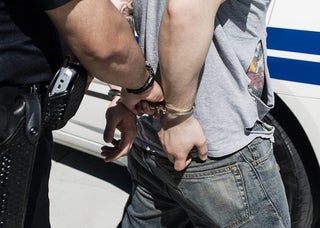

Last year, Justice Clarence Thomas broke 10 years of silence during oral argument to decry the injustice of laws that deprive domestic abusers of their right to own firearms. Now, an influential judge on the 9 th U.S. Circuit Court of Appeals has indicated he thinks Thomas has the right idea. Judge Alex Kozinski seized the opportunity to opine on the Second Amendment in Fisher v. Kealoha. The defendant in Fisher argued that Hawaii’s strict gun laws, which bar people with misdemeanor convictions for domestic violence from owning firearms without receiving a gubernatorial pardon, violate the Second Amendment. In a 3–0 decision, the 9 th Circuit disagreed, upholding the defendant’s conviction. But Kozinski wrote separately to “ruminate” on whether that outcome, while compelled by precedent, is really correct. “In other contexts, we don’t let constitutional rights hinge on unbounded discretion,” Kozinski asserted. “The time has come,” he concluded, “to treat the Second Amendment as a real right.”
If Thomas’ comment was disturbing on its own, Kozinski’s concurrence is a signal of a dangerous and wrongheaded trend. (In 2013, Kozinski’s 9 th Circuit colleague, Judge Carlos Bea, also wrote that abusers do not lose their Second Amendment rights upon conviction.) It is galling to see these judges defend abusers’ rights to buy deadly weapons. It is also frustrating to see them focus on this particular right given their lack of sympathy for former convicts in other contexts. In the United States, millions of Americans are unable to cast ballots due to felony convictions. Guns kill. Voting hurts no one. And yet these judges evince far more solicitude for former convicts’ right to bear arms than their right to vote. To some conservatives, the Second Amendment is becoming the only amendment that matters. And its aggrandizement is coming at the expense of everyone else’s right to life and liberty.
Advertisement Advertisement Advertisement AdvertisementIt’s particularly odd to see these Second Amendment musings from Kozinski given his lack of sympathy for other constitutional rights. In a 2010 per curiam opinion that Kozinski joined, the 9 th Circuit found police did not use excessive force in violation of the Fourth Amendment when they shot an unarmed victim of domestic violence with a stun gun after she made incidental contact with an officer. The panel wrote that “[t]he volatility of situations involving domestic violence” makes them “particularly dangerous,” adding: “When officers respond to a domestic abuse call, they understand that violence may be lurking and explode with little warning.” Thus, officers have extra freedom to use force on domestic violence calls. In that case, the panel also warned that abusers are especially dangerous, noting the frequency of “domestic violence deaths involving the use of a firearm.”
AdvertisementKozinski’s Fisher concurrence, however, conveys no sympathy for the many people who might be murdered if their abusers were again allowed to purchase guns. Instead, he zeroes in on the Second Amendment rights of those very abusers, fretting that they are being eroded. In reality, this claim is laughable: The last several decades have brought a massive expansion of gun rights. Even former felons can bear arms in many states.
AdvertisementMeanwhile, 48 states and the District of Columbia impose some form of felon disenfranchisement, infringing upon that least dangerous but most fundamental of rights in a democracy: the right to vote. Four states—Florida, Kentucky, Iowa, and Virginia—have laws that permanently disenfranchise all former felons unless they receive clemency from the governor. Six other states permanently disenfranchise at least some classes of former felons. In Tennessee, former felons may be prohibited from having their voting rights restored if they have outstanding restitution, court costs, or child support payments. In Alabama, where those convicted of unspecified felonies involving “moral turpitude” are ineligible to vote, county registrars are left to decide whether a former felon falls into that vague category of ineligible voters.
Advertisement AdvertisementEven in the 38 states that automatically restore voting rights upon completion of incarceration or supervised release, ex-offenders still encounter substantial barriers to casting ballots. These include the maze of laws and procedures required to re-register to vote, poor communication among state agencies, and the underfunding of state parole boards that are sometimes required to process applications for the restoration of rights. During the 2016 election, the Sentencing Project estimates felon disenfranchisement laws prohibited 6.1 million people from voting. These laws have a profound, disparate impact on racial minorities. One in 13 black Americans of voting age is disenfranchised. In four states, more than 1 in 5 black Americans does not have the right to vote due to a felony conviction.